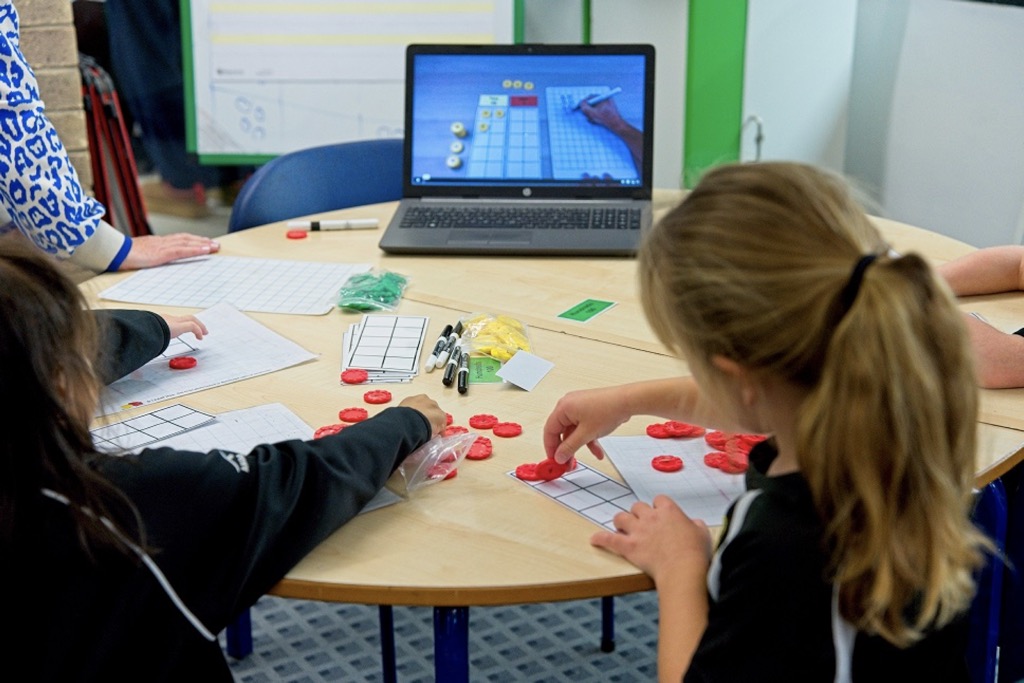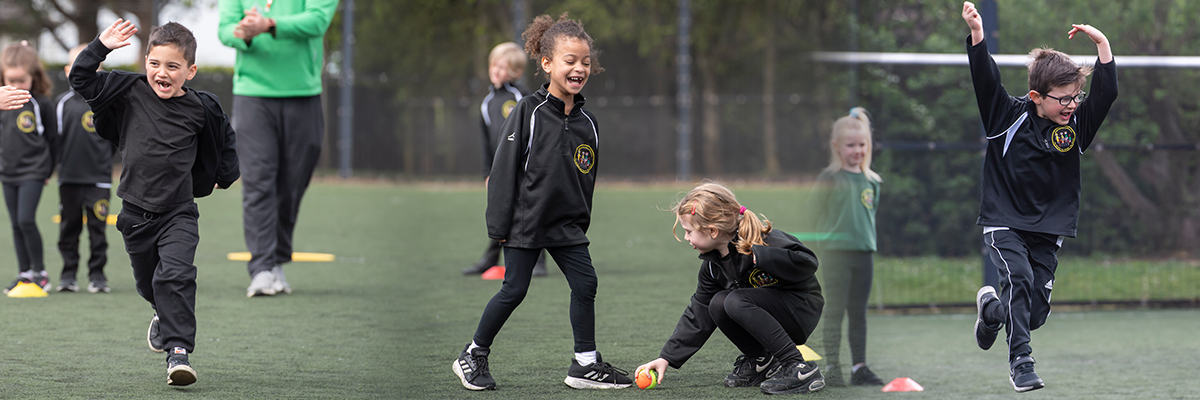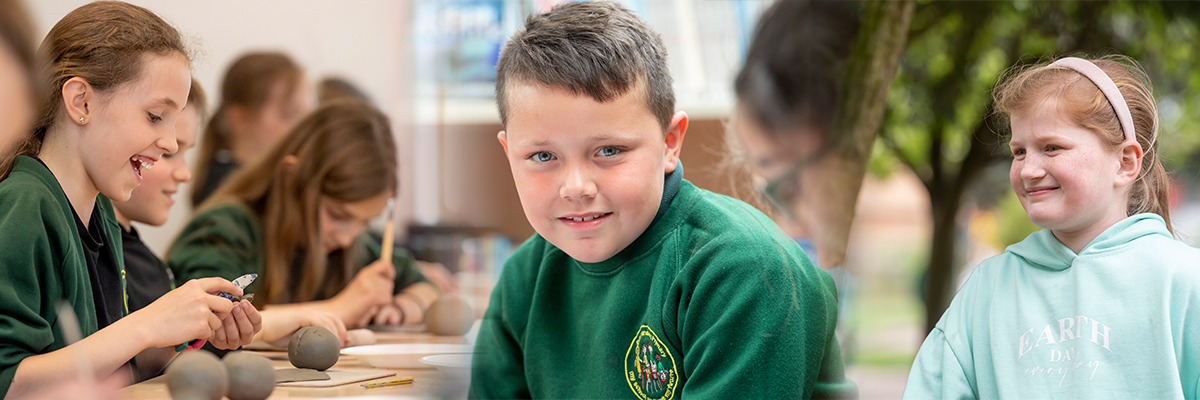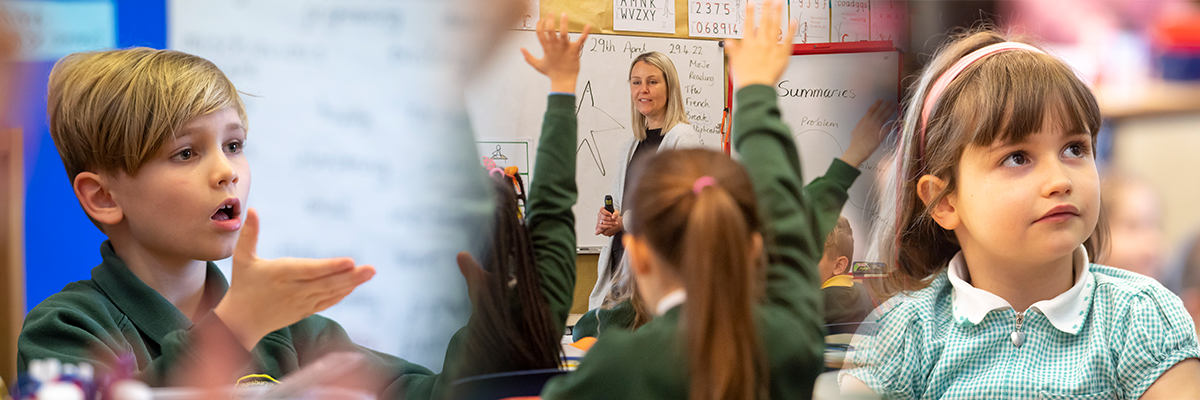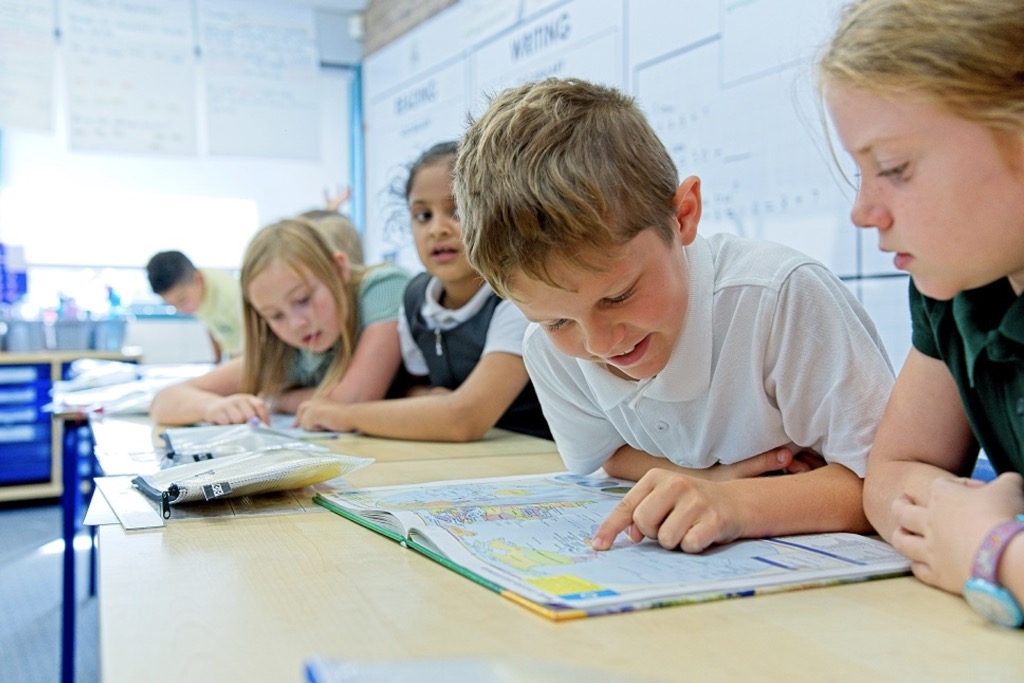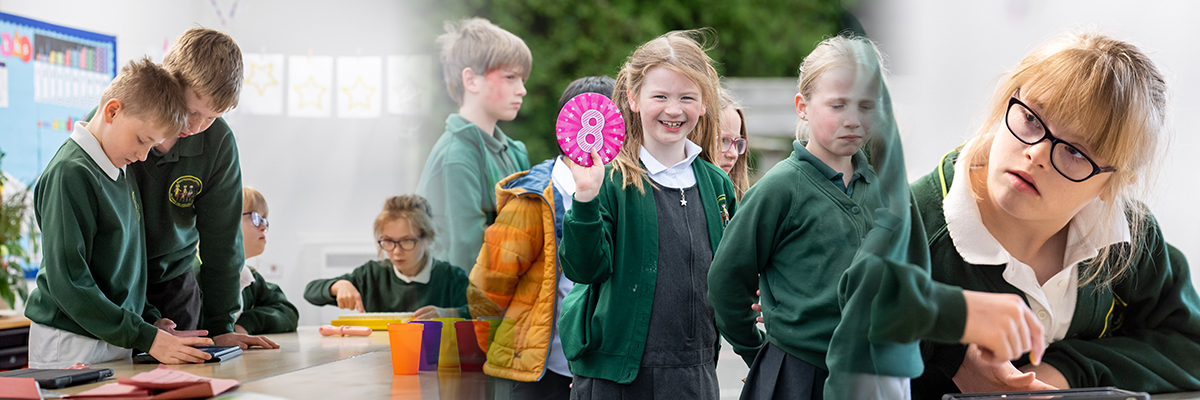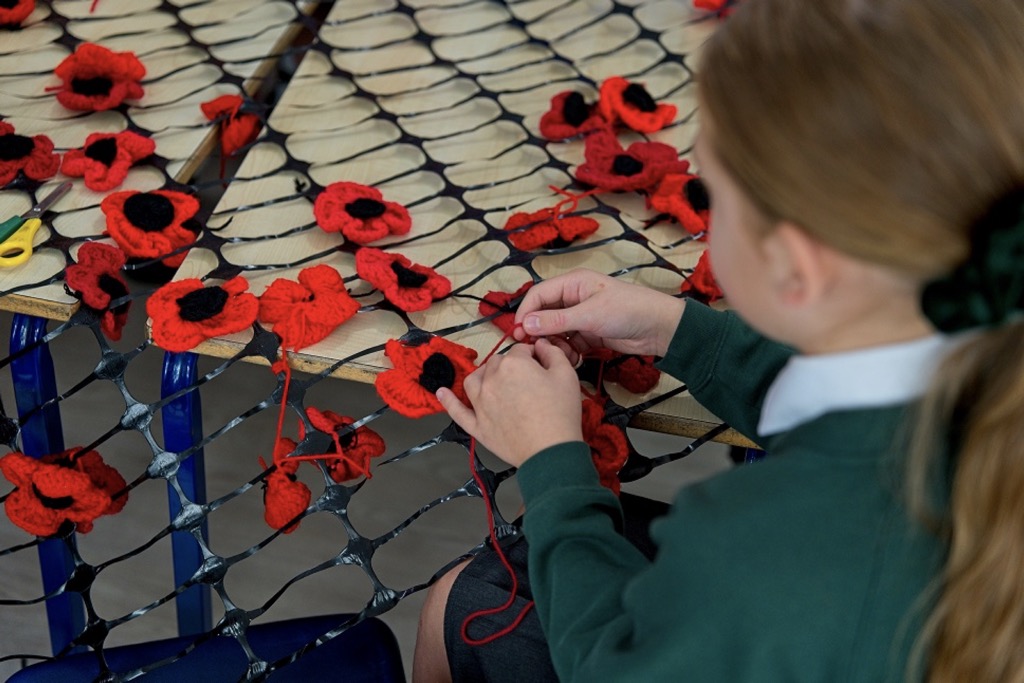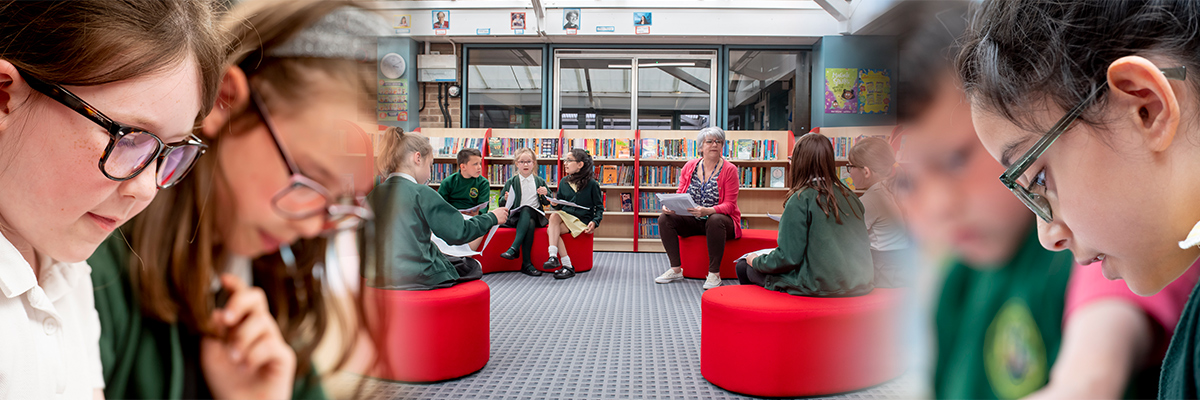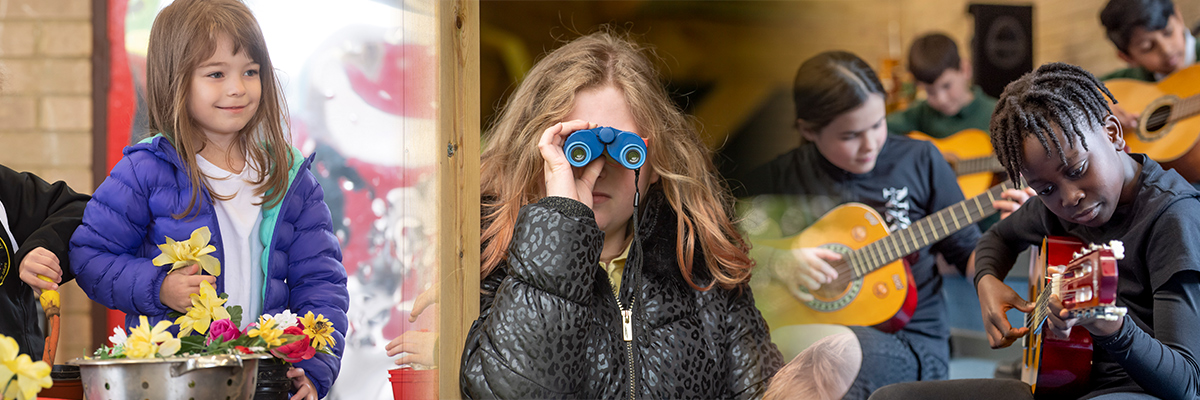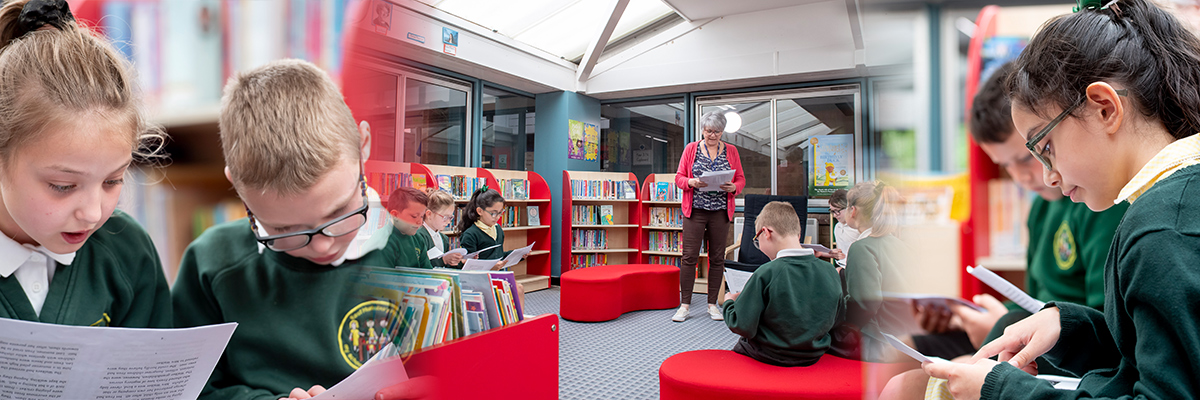Our Curriculum : History
History plays an important role at East Hunsbury Primary School and is fundamental to our mission of creating aspirational and knowledge–rich pupils.
|
"History, the study of the past, is all around us; we are continually making history through our thoughts, words and actions. History is personal and global; it is everyday life and momentous occasions. History is about people. Through our study of the past, we can understand how our own world works. We can also understand how and why things happen to us. For example, had you ever wondered why the polar ice caps are melting? The answer partially lies in history. The Industrial Revolution caused the birth of industrial towns and factories, belching out smoke and pollution. It also caused the mechanisation of society, adding to the pollution. Could this partially explain the pollution problems that we face today? History is not just about the past!" Historical Association |
It is our intention that our history curriculum is aspirational, enabling and inclusive and supports children in understanding Britain’s past and that of the wider world. We intend that our history curriculum will enable children to:
- Understand history as a subject discipline and know how what we learn from history can affect our own lives and the lives of others.
- Become curious about the past and be equipped to ask informed, perspective-led questions.
- Develop children’s mental timeline (schema) by cumulatively building pupils’ knowledge of periods and events.
- Think critically, compare, weigh evidence, sift arguments and develop perspective and judgement.
- Understand the complexity of people’s lives and the process of change over time.
- Develop an understanding of the diverse societies and relationships between different groups, as well as their own identity and challenges of their time.
- Leave our school with a chronologically secure knowledge of British, local and world history.
- Notice connections, contrasts and trends over time and develop the appropriate use of historical terms.
- Learn through history and use this learning to influence their decisions about personal choices, attitudes and values.
To ensure high standards of teaching and learning in history, we implement a brilliant curriculum which has been carefully sequenced to ensure children obtain a solid understanding of key historical concepts and knowledge. This is a knowledge-rich history curriculum which entwines both substantive and disciplinary knowledge. Knowledge is given a high status as we aim to empower our children and carefully build their understanding of the subject. Tier 2 and 3 vocabulary is taught within the unit and is reinforced throughout the year.
The following high-dividend concepts have been identified as part of our history curriculum:
- Change
- Conflict
- Community
- Culture
- Legacy
- Locality
- Power (including monarchy)
- Trade
These concepts form the ‘Big Ideas’ through which all history is taught. Within our curriculum, teachers make explicit reference to where children have met these concepts before and ensure their understanding of these concepts builds throughout the curriculum.
Local history has been integrated into our curriculum as whole term units in alternate year groups. However, local history links have also been planned within other units e.g. in Year 4, children learn about an aspect or theme of local history that extends their chronological knowledge beyond 1066. British and World history is woven throughout our history curriculum where it is generally taught as whole term units.
By the end of Key Stage 2, all pupils will have a coherent knowledge and understanding of Britain’s past, and that of the wider world, and will have acquired the disciplinary skills of historians. Pupils will be able to ask perceptive questions, think critically, weigh evidence, sift arguments and develop perspective and judgement.
The impact of our history curriculum will be monitored closely and will be assessed through a multi–faceted approach including:
- Skilful questioning lesson by lesson
- High quality conversations by teachers during lessons which also address misconceptions,
- Weekly retrieval practice
- Lesson quizzes
- Appropriate writing outcomes
- End of unit summative tasks such as double-page spreads, non-chronological reports including essays and quizzes.
- Book Looks
- Teacher and Pupil voice
At the end of the year, teachers will record pupil attainment data onto our assessment system, Insight, which further contributes to ongoing assessment of our history curriculum.
Leaders will continually monitor the quality and impact of the history curriculum and assess which pupils know more and remember more.
Our history curriculum is taught through weekly lessons within terms 1, 3 and 5. However, there are also additional lessons throughout the year where they are linked to specific historical events such as The Gunpowder Plot and Remembrance Day (which are both taught in term 2). Our history curriculum ensures children have a rich understanding of local, British and world history. Our curriculum and pedagogy will enable children begin secondary school being able to articulate, with a secure chronological knowledge, aspects of local, British and world history. They will be able to use appropriate historical terms as well as note connections, contrasts and trends over time. Key history vocabulary is progressive and is explicitly taught as part of our history Curriculum.
|
History |
Term 1 |
Term 2 |
Term 3 |
Term 4 |
Term 5 |
Term 6 |
|
Year 1 |
Past and Present Changes within Living Memory (NC) |
The Gunpower Plot
Events that are significant nationally or globally (NC) History Short unit (1 week) |
Edith Cavell and Mary Seacole The lives of significant individuals in the past who have contributed to national and international achievements (NC) |
Geography |
Northampton Boot and Shoe Industry Significant historical events, people and places in their own locality (NC) |
Geography |
|
Geography (5-week unit) |
||||||
|
Year 2 |
Great Fire of Northampton Significant historical events, people and places in their own locality – Great Fire of Northampton (NC)
|
Remembrance Day Events that are significant nationally or globally (NC) History Short Unit (1 week) |
Christopher Columbus and Neil Armstrong The lives of significant individuals in the past who have contributed to national and international achievements (NC) |
Geography |
Great Fire of London Events beyond living memory that are significant Nationally or Globally (NC) |
Geography |
|
Geography (5-week unit) |
||||||
|
Year 3 |
The Stone Age to the Iron Age
Changes in Britain from the Stone Age to the Iron Age (NC) (including the Bronze Age) |
Geography |
The Romans
The Roman Empire and its impact on Britain (NC) |
Geography |
Anglo-Saxons
Britain’s settlement by Anglo-Saxons and Scots (NC) |
Geography |
|
Year 4 |
The Vikings The Viking and Anglo-Saxon struggle for the Kingdom of England to include the time of Edward the Confessor (NC) |
Geography |
School Designed Local History Unit How do Northampton’s monuments reflect its history? In this unit, pupils will develop their understanding and knowledge of how monuments reflect the past of Northampton. |
Geography |
Ancient Egypt The achievements of the earliest civilizations – an overview of where and when the first civilizations appeared and a depth study of Ancient Egypt (NC) |
Geography |
|
Year 5 |
The Industrial Revolution A study of an aspect or theme in British History that extends pupils’ chronological knowledge beyond 1066 (NC) |
Geography |
Shakespeare in the time of the Tudors A study of an aspect or theme in British History that extends pupils’ chronological knowledge beyond 1066 (NC) |
Geography |
Walter Tull and Frank Anderson (World War I) A local history study (NC)
|
Geography |
|
Year 6 |
World War II A study of an aspect or theme in British history that extends chronological knowledge (NC) |
Geography |
Benin AD 900-1300
A non-European society that provides contrast with British history - Benin AD 900 – 1300 (NC) |
Geography |
Ancient Greece
Ancient Greece – a study of Greek Life and achievements and their influence on the western world (NC) |
Geography |
The knowledge content in our curriculum is specified in detail and is taught to be remembered, not just encountered. Knowledge is sequenced and mapped deliberately and coherently so, beyond the knowledge specified for each unit, there are also vertical and horizontal links across the history curriculum which promote the construction of a secure historical schema. There are also opportunities to make diagonal links to other disciplines which have been explicitly planned for. Some examples of these links are as follows:
- Horizontal links where knowledge and understanding are built upon within a year group. E.g In Year 2, children learn about the Great Fire of London which builds upon their knowledge and understanding of a similar but contrasting event from the Year 2 unit, The Great Fire of Northampton.
- Vertical links where knowledge and understanding are built upon from history units in a previous year group. E.g. In Year 4, children will continue to build their understanding of invasion from their studies of the Romans and Anglo-Saxons in Year 3.
- Diagonal links where links between knowledge and understanding are cross-curricular. E.g. links between ‘The Northampton Boot and Shoe Industry’ (history) and knowledge of Northampton in ‘Where Do I Live?’ (geography) or links between The Industrial Revolution (history) and the effect this had on the evolution of the peppered moth in ‘Evolution and Inheritance (science).
Our ambitious history curriculum begins in the Early Years where it is practical and inclusive. It is taught with support and challenge from adults in class sessions, small groups and from working with individuals. There is a combination of adult-led and teacher-taught sessions as well as a wealth of stimulating continuous provision opportunities where adults scaffold learning through skilful interactions and questioning, including independent exploration/play.
Through Understanding of the World, a specific area of learning within the Early Years’ framework, children’s foundations of historical knowledge are laid as they learn to:
- Begin to make sense of their own life-story and family history
- Comment on images of familiar situations from the past
- Compare and contrast characters from stories, including figures from the past
- Talk about the lives and roles of people around them
- Know similarities and differences between things in the past and now through drawing on their experiences and what they have read in class.
- Understand the past through settings, characters and events read in class and storytelling.
Our curriculum has been sequenced so that it builds on the historical knowledge learnt within the Early Years. During Key Stage 1, children develop their knowledge of changes within living memory, the lives of significant individuals and historic events that occurred nationally or within their locality. Through Key Stage 2, they build on this understanding and develop an understanding of local and world history. They gain a coherent knowledge and understanding of Britain’s past and that of the wider world and of the legacy that exits today. This has been done through attention to chronology, the study of a range of time periods and through the study of local history. The range of units selected to study through Key Stage 1 and Key Stage 2 will continue to build both historical substantive and disciplinary knowledge.
Enrichment in history goes beyond the curriculum requirements at East Hunsbury Primary School. We impact on the children’s learning by creating memorable experiences both in the classroom and beyond. Some examples of enrichment in history are:
- In Year 3, the children study The Romans and visit a Roman Ruin site and handle artefacts.
- In Year 1, the children study Northampton’s Boot and Shoe Industry and have opportunities to look at a range of shoes through the eras and design and make their own shoes.
- During Black History Month, all children learn about famous significant black people who have impacted our society and inspired young children, including Nicola Adams, Maya Angelou, Floella Benjamin and Mo Farrah.
At East Hunsbury Primary School, the British Values of Democracy, The Rule of Law, Individual Liberty and Mutual Respect and Tolerance of those with different faiths and beliefs are embedded within our history curriculum. Children explore issues such as Democracy in their historical contexts and relate them to the modern day through studying periods such as Ancient Greece. This enables them to understand how, over time, changes happened and how to evaluate the impact of this change. By looking at the achievements of famous British people in all Key Stages, children develop an awareness of how these individuals influenced and shaped the county in which we live and the impact some of them have had on our own locality (e.g. Walter Tull).
Teaching children to respect and value diversity is encouraged in the day-to-day teaching and learning of history through showing respect for different viewpoints and ideas. The children are also encouraged to work effectively together both individually and in groups.
The national curriculum recognises how important it is for children to understand the world in which they live. Here at East Hunsbury Primary School, we want children to live alongside and show respect for a diverse range of people. We provide children with the knowledge and skills to do this through the teaching of protected characteristics within our history curriculum. The protected characteristics are actively promoted to ensure that pupils have an age-appropriate knowledge and understanding of the nine protected characteristics. Our curriculum ensures that, as a school, we:
- Eliminate discrimination, harassment, victimisation and any other conduct that is prohibited by or under the Equality Act 2010.
- Provide equality for all.
- Foster good relations between persons.
Examples of where this is demonstrated within the history curriculum are:
- The study of Mary Seacole and Edith Cavell in Year 1 where children make observations about social, cultural, religious and ethnic diversity in Britain and the wider world.
- The study of World War 1 including Walter Tull and Frank Anderson in Year 5 where the children explore the lives of these two men amidst the turmoil of The Great War, whilst also fighting against racial discrimination.
- The study of Shakespeare in the time of the Tudors in Year 5 where the children learn about the key monarchs during this period and that William Shakespeare lived under the reign of Elizabeth I. They will learn about what life was like for those living during the Tudor period and will begin to compare the quality of life for the rich and poor.
It is extremely important to us that our children grow up to be respectful, ambitious and empathetic pupils who respect the world in which they live.
We ensure that every child has what they need to succeed within history. Our history curriculum is ‘inclusive by design’. It is our ambition for all our pupils to access the full history curriculum and quality first teaching enables this. Support for pupils with SEND or disadvantaged pupils is given by careful individual and/or group support to secure the knowledge they need to access the history curriculum.
Our history curriculum caters for the different groups within our school. Quality first teaching and learning supports the children’s individualised needs. We achieve this by creating opportunities for children by:
- Using visual supports
- Scribing work
- Open-ended investigations
- Outside learning
- Hands-on practical application and tasks
- Sensory experiences
- Visits and visitors
- The use of iPads and technology to assist and explore
We provide rich experiences and opportunities that run alongside the curriculum to embed our children’s historical learning. As part of this, we have close links with the school education teams. For example, there are links with the ‘Our World’ team through the study of communities and localities; links with ‘Enterprise and Economics’ through the study of The Industrial Revolution and links with ‘Careers and Aspirations’ through the study of Edith Cavell and Frank Anderson.
These links provide opportunities for the children at East Hunsbury Primary School to deepen their historical learning beyond that of the curriculum and understand the relevance of history in a real-life context.

